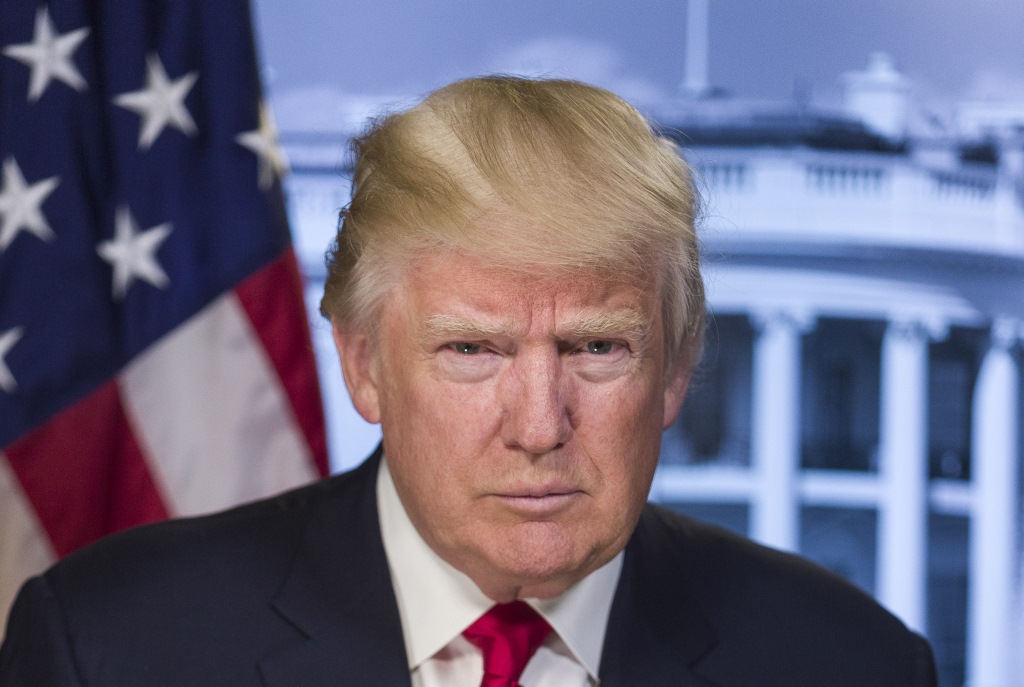Trump Directives Fall Flat in Wisconsin
President’s executive action on unemployment and evictions cause ‘uncertainty and confusion’, Evers says
Directives that President Donald Trump signed over the weekend to extend supplemental unemployment benefits and halt evictions are falling flat in Wisconsin — causing “uncertainty and confusion,” according to Gov. Tony Evers, and falling short of what is needed to shore up household incomes in the COVID-19-induced recession.
“It’s inadequate,” says Tim Smeeding, who teaches economics and public policy at the University of Wisconsin La Follette School of Public Affairs and whose research topics include income and wealth inequality. “It’s too small, misdirected, legally questionable. It’s clearly not enough. So it’s more show than the actual dough.”
Trump signed a series of memoranda Saturday as Republicans and Democrats in Congress remained far apart on new pandemic relief legislation to replace aid programs that have expired and offer new aid programs for a wide range of needs.
One Trump memo purported to replace the recently ended $600 weekly federal supplement for unemployed people with a $300 supplement, paid for by $44 billion diverted from Federal Emergency Management Agency (FEMA) disaster relief.
The unemployment supplement memo isn’t the first time Trump has offered state assistance while making states cover part of the cost up front. Last week, the president extended federal authorization for state National Guard units to help with statewide COVID-19 testing effective Aug. 21 through the end of the year, but also required most states to pay 25% of the cost — about $4 million for Wisconsin, Evers has estimated.
The state Department of Workforce Development, which oversees the state unemployment insurance system and has been deluged with a four-fold increase in new claims in recent weeks, directed inquiries about how Wisconsin would handle the proffered unemployment supplement to the governor’s office, which indicated that Trump’s directives are under review.
“President Trump’s actions have once again only created more uncertainty and confusion for folks across our state and our country that need help,” stated Evers, who urged Trump and Congress “to work together and act quickly to pass legislation that will provide real assistance for families and additional support and resources for states that are on the frontlines of responding to this pandemic.”
‘A Band-Aid’
The $300 that Trump’s memo calls for in a continued federal supplement, or even $400 if the state’s share is included, falls short of what Allegra Troiano says she needs along with her regular unemployment compensation from the state.
Troiano, a 64-year-old Milwaukee resident, was laid off in May from a private educational center where she was the director. The center serves students from overseas, instructing them in English to prepare them for college and graduate school. It shut down after colleges and universities sent students home in response to the pandemic.
Her unemployment was less than $300, she said. The $600 Federal Pandemic Unemployment Compensation (FPUC) supplement — included in the Coronavirus Aid, Relief and Economic Security (CARES) Act — augmented that. But the FPUC expired July 25.
The $300 or $400 in the Trump memo “is a Band-Aid” by comparison and will take time to implement if it is put in place at all, she adds. “It’s just salt in the wound.”
With DWD flooded with unemployment claims, thousands of applicants have reported delays in getting approved.
Some of them are represented by Legal Action of Wisconsin. One reason for those delays “is because the Wisconsin Department of Workforce Development was forced to quickly create massive and complicated new systems for distributing unemployment compensation,” says Susan Lund of Legal Action.
“Unfortunately, instead of legislation continuing the $600 Federal Pandemic Unemployment Compensation benefit, we now have [Trump’s memorandum] seeking to create another new system. The result will likely be confusion, delay, and harm to the families who desperately need the $600 FPUC financial lifeline.”
Evictions and housing
Other actions Saturday by the president included an executive order on evictions and housing assistance as well as memos on student loan repayment and temporarily deferring payroll taxes.
In the executive order, Trump directed the Department of Health and Human Services and the Centers for Disease Control and Prevention to “consider” whether more action to halt evictions is necessary and assigned the departments of Treasury and Housing and Urban Development to find money to give renters and homeowners “temporary financial assistance.”
“It is nice to see any part of the federal government moving in a positive direction on this issue,” said Mike Bare, research and program coordinator for Community Advocates Public Policy Institute in Milwaukee, which addresses issues affecting low-income people, including housing and eviction. “Unfortunately, this order from the president doesn’t provide any immediate relief.”
Aid needs to run “through the end of 2021,” Bare added. “These are issues we’ll be working through for quite some time.”
The student loan memo allows borrowers to defer payments for the rest of the year and keeps interest rates at 0%, extending a provision that was in the CARES Act.
The payroll tax memo allows employers to put off until 2021 paying that tax — which funds Social Security — for employees making less than $104,000 per year. That action has already drawn criticism because it doesn’t provide any assistance for people out of work, and because employees would still owe the money on their 2020 taxes.
According to Smeeding, as long as the pandemic keeps people from being able to work, they will need better income support in order to survive and keep the economy afloat.
“Until we are able to feel safe, when people are able to go out and spend money, to consume,” he says, “we’re in trouble.”
Reprinted with permission of Wisconsin Examiner.
More about the Coronavirus Pandemic
- Governors Tony Evers, JB Pritzker, Tim Walz, and Gretchen Whitmer Issue a Joint Statement Concerning Reports that Donald Trump Gave Russian Dictator Putin American COVID-19 Supplies - Gov. Tony Evers - Oct 11th, 2024
- MHD Release: Milwaukee Health Department Launches COVID-19 Wastewater Testing Dashboard - City of Milwaukee Health Department - Jan 23rd, 2024
- Milwaukee County Announces New Policies Related to COVID-19 Pandemic - County Executive David Crowley - May 9th, 2023
- DHS Details End of Emergency COVID-19 Response - Wisconsin Department of Health Services - Apr 26th, 2023
- Milwaukee Health Department Announces Upcoming Changes to COVID-19 Services - City of Milwaukee Health Department - Mar 17th, 2023
- Fitzgerald Applauds Passage of COVID-19 Origin Act - U.S. Rep. Scott Fitzgerald - Mar 10th, 2023
- DHS Expands Free COVID-19 Testing Program - Wisconsin Department of Health Services - Feb 10th, 2023
- MKE County: COVID-19 Hospitalizations Rising - Graham Kilmer - Jan 16th, 2023
- Not Enough Getting Bivalent Booster Shots, State Health Officials Warn - Gaby Vinick - Dec 26th, 2022
- Nearly All Wisconsinites Age 6 Months and Older Now Eligible for Updated COVID-19 Vaccine - Wisconsin Department of Health Services - Dec 15th, 2022
Read more about Coronavirus Pandemic here






















